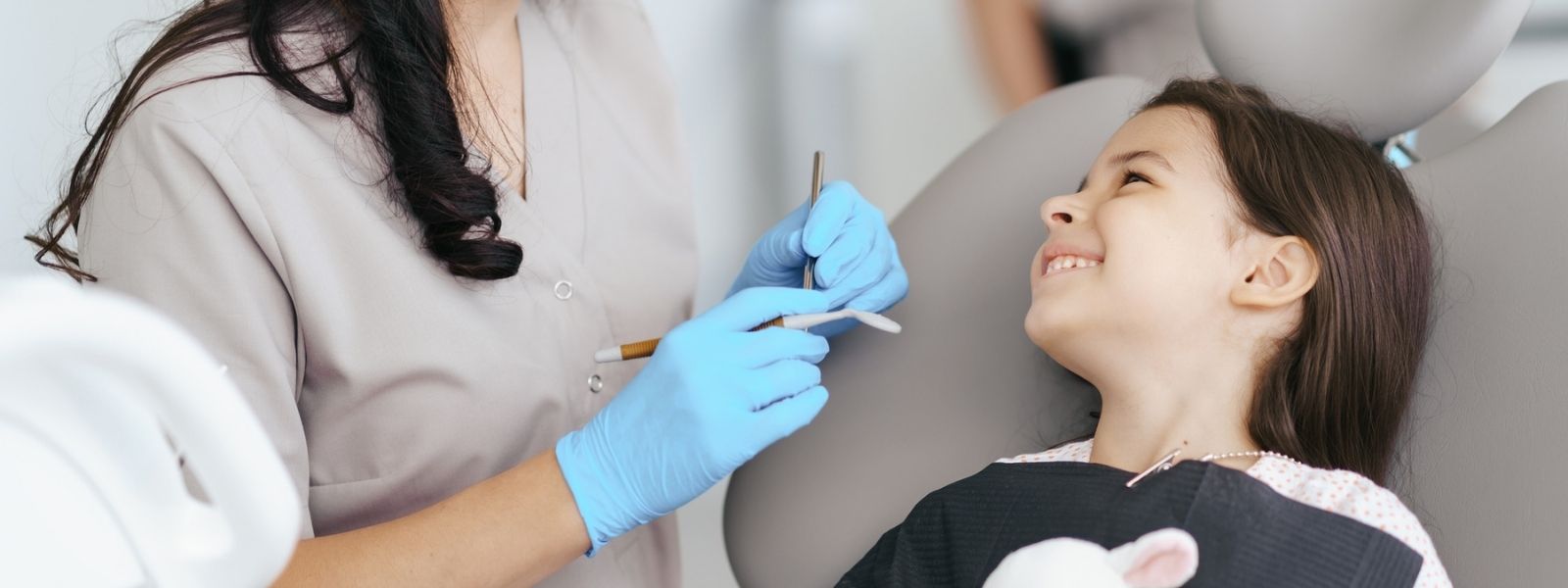“Baby root canal” (pulpotomy) and how we protect and preserve your child’s first teeth
According to the CDC, one of every five 5- to 11-year-olds in the U.S. has untreated tooth decay. Most children have both “baby” (or primary) and “adult” (or secondary teeth) until around the age of 12, and most of their permanent teeth do not come in until after age 6. So, it’s likely that much of that untreated tooth decay is affecting the baby teeth! And, while temporary, these teeth truly matter.
When severe decay, injury, or infection threatens the long-term viability of a primary tooth, a nerve treatment (commonly referred to as a “baby root canal”) may be necessary to save the tooth. The treatments (known as pulpotomy or pulpectomy) can vary depending on the extent of the damage, but in many cases, these teeth can be restored to good health and remain in service for the child until the tooth falls out naturally, preventing the need for extraction and subsequent loss of space for future permanent teeth. Dr. Groat and his team are equipped with the training and experience to make these procedures easy for kids and parents alike.
At Groat Pediatric Dentistry in San Pedro, California, we have the great responsibility and privilege of working with kids and parents to protect these first teeth.

TLC for tiny mouths
Researchers have found that patients with decayed baby teeth are three times more likely to develop decay in their later adult teeth. Similarly, oral health problems in early childhood are a predictor of dental disease in adulthood. As indicated, these teeth serve many vital functions, including:
- To reserve the spaces for developing permanent teeth
- To prevent the “drift” that occurs when baby teeth are lost prematurely
- To avoid complications caused by this process of early tooth loss, for instance, misaligned teeth and jaws that then require extensive orthodontic treatments later on
- To prevent potentially dangerous complications caused by deeply inflamed or decayed teeth
Notably, oral infections do not “stay put.” They can enter the bloodstream and spread to other parts of the body. Systemwide infections are a medical emergency. To support your child’s oral and overall health, it is essential that we stay ahead of these potentially severe consequences. We can do so with interventions like pulpotomy, which is simply the medical way of referring to a treatment similar to root canal therapy (RCT), only on baby teeth.
Pediatric pulpotomies generally involve accessing the infected tooth by making a small opening in the crown. Once Dr. Groat reaches the inside of the tooth – its pulp – he removes the damaged tissue. We then clean the tooth and seal it off with a crown to protect the treatment site, encourage healing, and to prevent the tooth from becoming re-infected. On adult teeth, this is generally just one of the steps involved with root canal therapy. So, it is not quite as extensive of a procedure as RCT. This is just one of many restorative therapies and interventions available at Groat Pediatric Dentistry to save baby and adult teeth. Call (310) 832-5133 with questions and to schedule an appointment at our “dental home” in San Pedro, CA.




